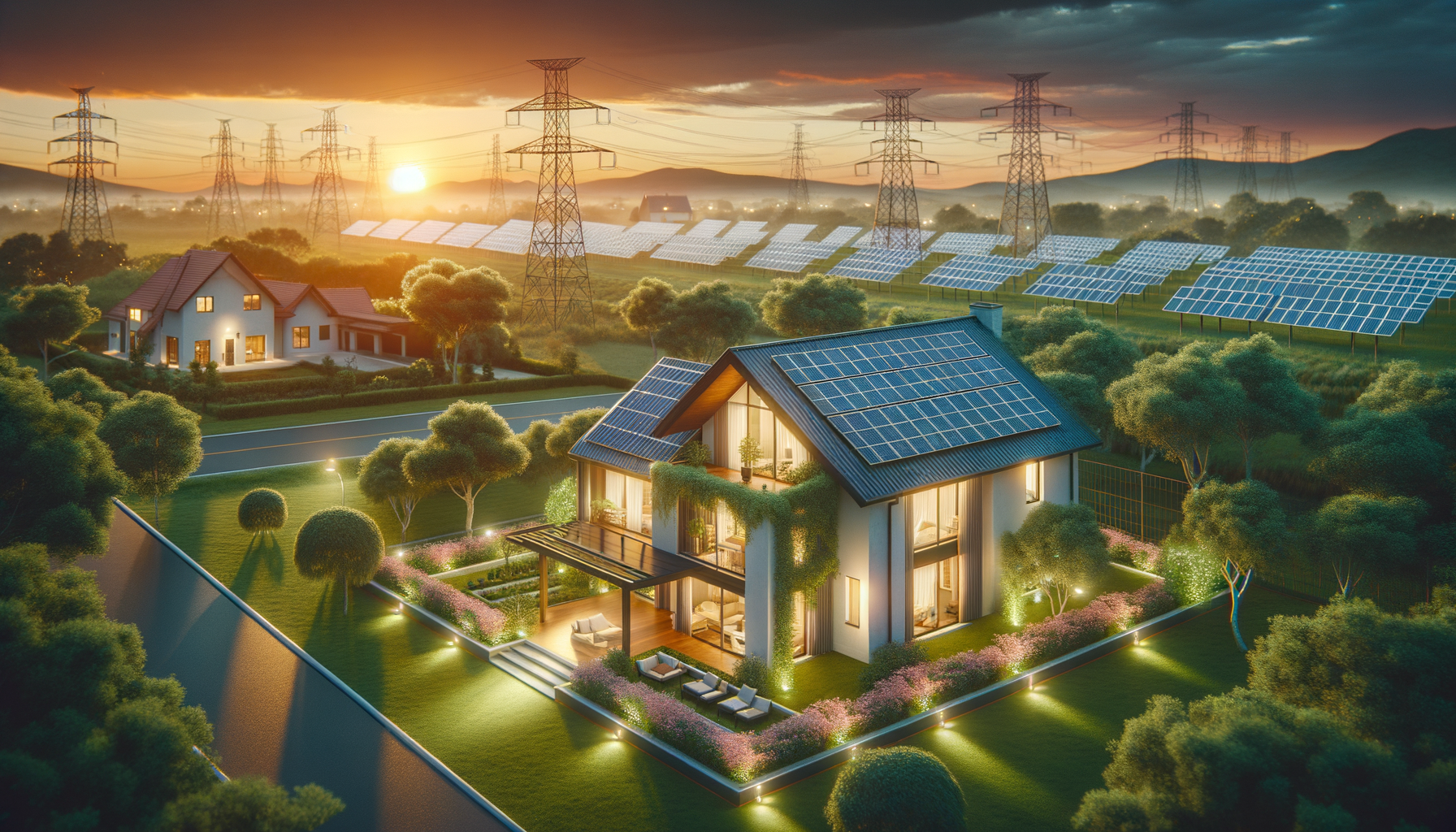Introduction to Solar Energy
In recent years, solar energy has emerged as a prominent solution for sustainable power generation. As the world grapples with the effects of climate change and the need for renewable energy sources becomes more urgent, solar systems and panels offer a viable path forward. This article explores the relevance and importance of solar energy, particularly for homeowners considering the switch to solar power. By understanding the benefits and challenges of solar systems, individuals can make informed decisions about adopting this renewable energy source.
Understanding Solar Systems and Panels
Solar systems are composed of several key components that work together to convert sunlight into usable electricity. At the heart of these systems are solar panels, which contain photovoltaic (PV) cells. These cells are responsible for capturing sunlight and converting it into direct current (DC) electricity. An inverter then transforms this DC electricity into alternating current (AC), which can be used to power household appliances.
There are different types of solar panels available, each with its unique characteristics. Monocrystalline panels are known for their high efficiency and sleek design, making them a popular choice for residential installations. Polycrystalline panels, while slightly less efficient, are often more affordable, providing a cost-effective option for many homeowners. Additionally, thin-film solar panels offer flexibility and are lightweight, though they generally have lower efficiency compared to crystalline panels.
The installation of solar systems can vary based on the size and layout of a property. Roof-mounted systems are common for residential installations, while ground-mounted systems may be suitable for larger properties with ample space. Understanding these options allows homeowners to select a system that aligns with their energy needs and budget.
Benefits of Switching to Solar Energy
Adopting solar energy offers numerous benefits that extend beyond environmental conservation. One of the primary advantages is the reduction in electricity bills. By generating their own power, homeowners can significantly decrease their reliance on grid electricity, leading to substantial cost savings over time. Additionally, many regions offer incentives and tax credits for installing solar systems, further enhancing the financial appeal of going solar.
Solar energy also contributes to energy independence. By producing electricity on-site, homeowners are less vulnerable to fluctuations in energy prices and supply disruptions. This independence can provide peace of mind, particularly during times of increased demand or energy crises.
Environmental benefits are another compelling reason to switch to solar power. Solar energy is a clean, renewable resource that produces no greenhouse gas emissions during operation. By reducing reliance on fossil fuels, solar systems help mitigate climate change and reduce the carbon footprint of households.
Challenges and Considerations for Homeowners
While the benefits of solar energy are significant, there are also challenges and considerations that homeowners must address. One of the primary concerns is the initial cost of installation. Although prices have decreased in recent years, the upfront investment for solar systems can still be substantial. However, financing options and leasing programs are available to help mitigate these costs.
Another consideration is the suitability of a property for solar installation. Factors such as roof orientation, shading, and available space can impact the efficiency and effectiveness of a solar system. Conducting a thorough site assessment is crucial to determine the feasibility of solar energy for a specific location.
Maintenance is another aspect to consider. While solar panels are generally low-maintenance, they do require periodic cleaning and inspections to ensure optimal performance. Homeowners should be prepared to invest time and resources into maintaining their systems to maximize their lifespan and efficiency.
Conclusion: Is Solar Energy Right for You?
Deciding to switch to solar energy is a significant decision that requires careful consideration of various factors. For homeowners seeking to reduce their environmental impact, achieve energy independence, and save on electricity bills, solar systems present a compelling option. However, it is essential to weigh the initial costs, property suitability, and maintenance requirements before making the transition.
Ultimately, the decision to adopt solar energy should align with individual goals and circumstances. By thoroughly evaluating the benefits and challenges, homeowners can make informed choices that contribute to a sustainable and energy-efficient future. As technology advances and solar solutions become more accessible, the potential for widespread adoption continues to grow, offering a brighter, cleaner future for all.




Leave a Reply